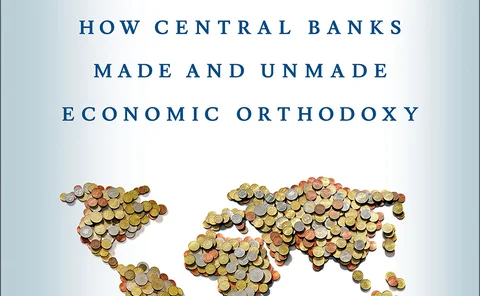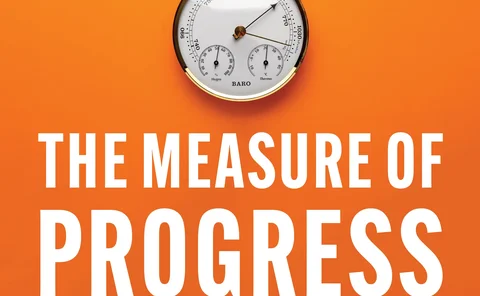Central Banking Journal - Volume XXXV Number 4

Articles in this issue
A fractured monetary system
US policy is encouraging a transition away from a dollar-led, rules-based order
People: April to June 2025
A round-up of central bankers in the news and on the move during the past three months
Bank notes: April to June 2025
A round-up of news and salient issues that have affected central bankers in the past three months
Ukraine’s Andriy Pyshnyy on the US minerals deal, ongoing reforms and post-war plans
The National Bank of Ukraine’s governor speaks about managing inflation, financial sector reform, FX reserves, international aid and actions in the event of a peace deal
Do central bank governors make good prime ministers?
Mark Carney is the latest to make the leap, but the record elsewhere has been mixed
Time to worry about Japanese debt?
The transition to positive rates means Japan may need to re-examine its huge public debt burden, argues Sayuri Shirai
A fireside chat with BIS head Agustín Carstens
The lifetime achievement award-winner speaks with Chris Jeffery about how experiencing inflation shaped his career, gaps in economic theory and macro-pru governance, the future of money and the importance of international co-operation
Reflections on the international financial situation
Former IMF head Jacques de Larosière writes that markets are blind to Trump's policy shocks that are fragmenting the monetary ‘system’, causing strain in the eurozone and may result in stagflation
Maurice Obstfeld on the trade war’s damage to the monetary system
The former IMF chief economist speaks about Trump’s chaotic economic policies, the erosion of Fed independence and dollar stability, difficult policy trade-offs for central banks, and the threat to the Bretton Woods institutions
US dollar dominance: beyond the ‘exorbitant privilege’
Biagio Bossone argues that dollar ‘seigniorage’ extends into the very structure of global finance and its ‘exorbitant privilege’ is worth up to $804 billion annually
Is the central bank gold rush over?
Has gold become too expensive to offer value as a diversification asset amid geopolitical turbulence?
Nabiullina: still Putin’s most effective general
Even Russia’s enemies say its central bank governor has played a bad hand well. But for how much longer?
Do central banks need more tools to regulate the financial system?
Policy-makers from Armenia, Thailand and New Zealand share perspectives on how to keep up with the ever-changing industry
Key lessons from 15 years of macro-prudential policy
Pedro Duarte Neves reviews how macro-prudential tools can be used for maximum effect
Agent-based models come of age
Central banks are increasingly modelling the economy as a complex system
The implications of IFRS 18 for central banks
The new accounting rule on presentation and disclosure in financial statements may require changes in reporting practices and systems, complicating consistency and materiality considerations
Tracking the changing cash cycle: a global analysis
Antti Heinonen highlights sharp declines in note-return frequency and destruction rates
Book notes: Unexpected revolutionaries: how central banks made and unmade economic orthodoxy, by Manuela Moschella
This book delves into the political science perspective of central banking since the 1970s but lacks nuance and depth
Book notes: The political economy of central banking, by Alessandro Roselli
Roselli’s book offers a comprehensive history of the relationship between governments and central banks
Book notes: Smart money: how digital currencies will win the new Cold War, by Brunello Rosa with Casey Larsen
This alarmist book, although lacking nuance, provides a lucid account of how CBDCs could play a decisive role in geopolitical dominance
Book notes: The measure of progress: counting what really matters, by Diane Coyle
The book offers important insights into national income data compilation that are frequently ignored by economists
























